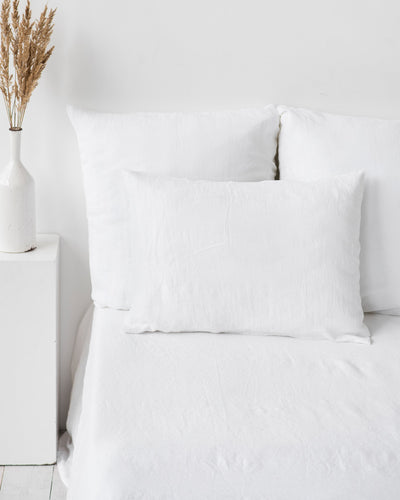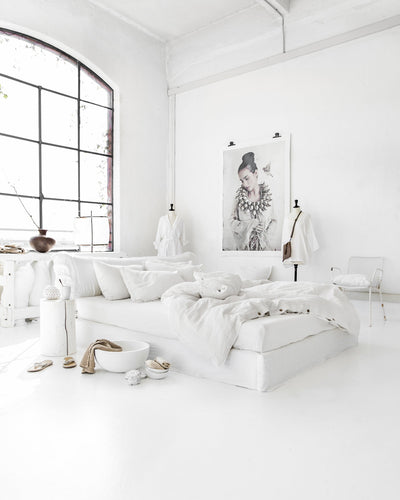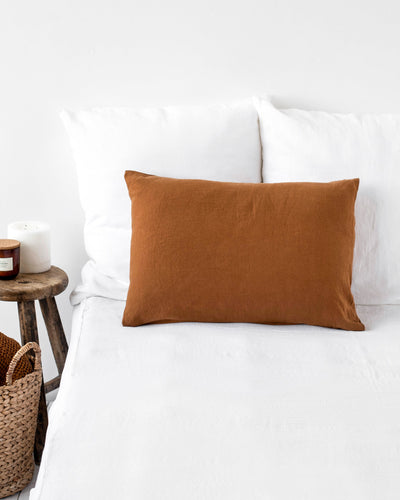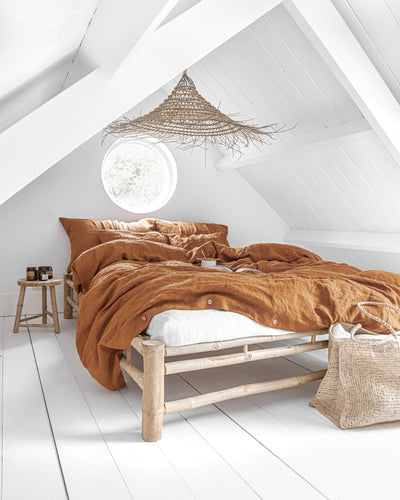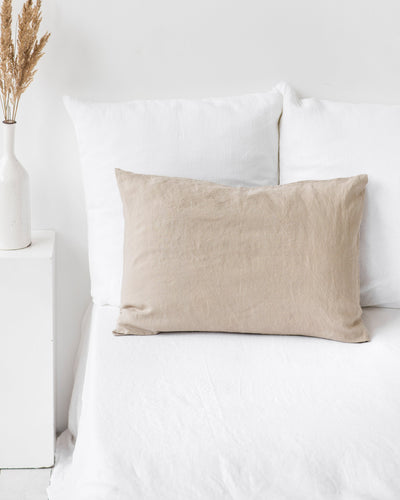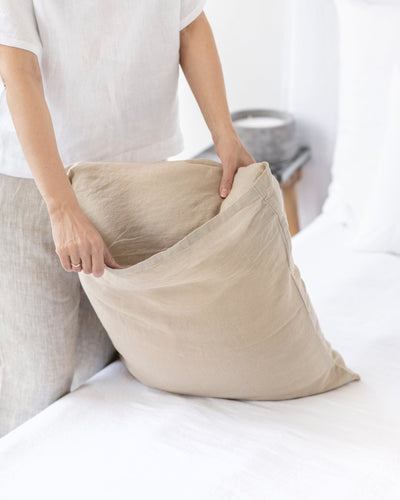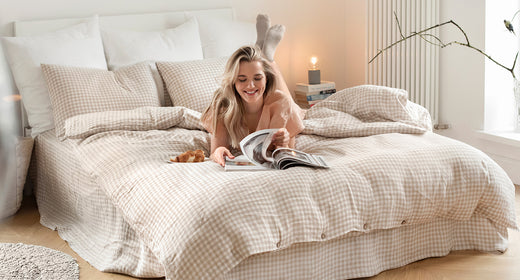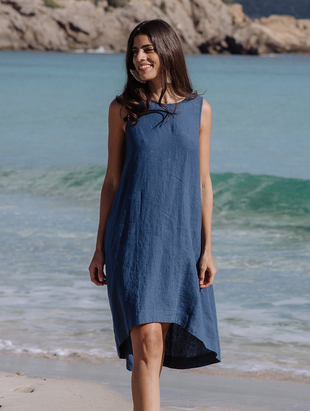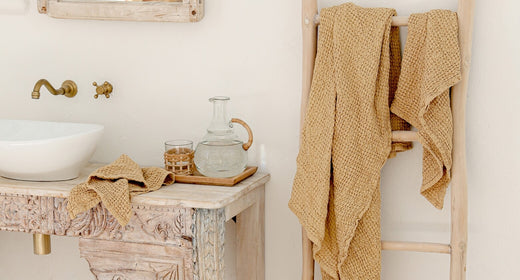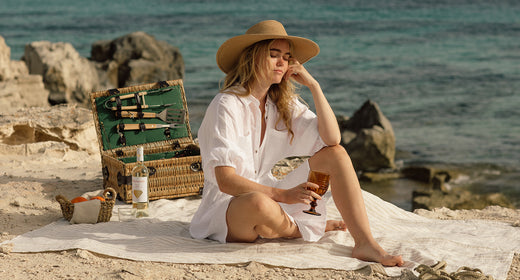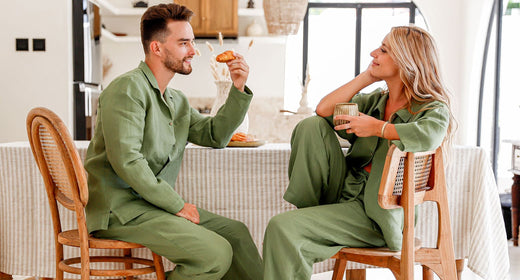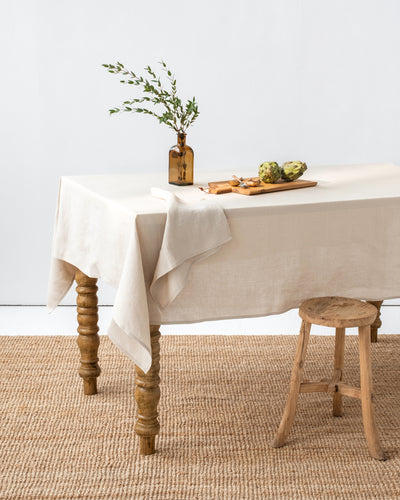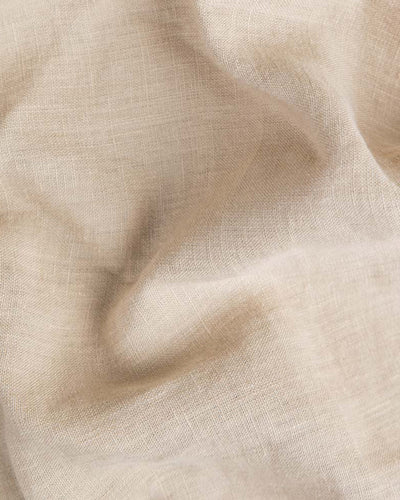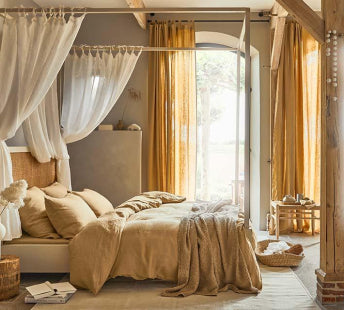How to Starch Linen Tablecloths?
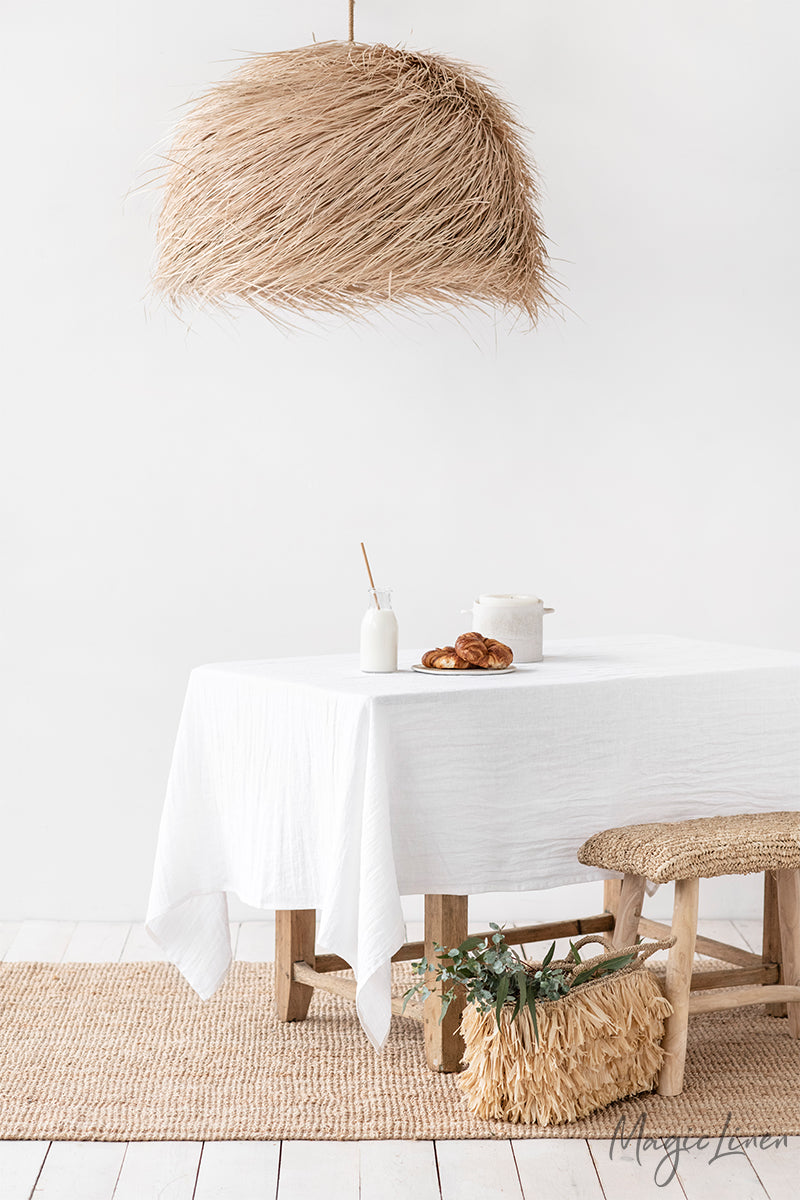
- Linen tablecloths are great because they are very universal and suitable for any occasion (or no occasion at all).
- Unlike sheets or clothes, wrinkled table linens do not look lovely or attractive, therefore it is important to know how to take care of them properly in order to maintain a perfect look.
- In the article below, we will explain how to take care of table linens and keep them free of wrinkles and creases.
Seemingly very minimalistic and simple, linen is actually a very luxurious material. It is very high-quality and durable, and most importantly - looks just gorgeous. Besides, it is easy to match different kinds of interior elements.
Tablecloths are one of the most popular linen items used in many households. They are very easy to style for any occasion - both formal and casual. Combined with matching linen accessories, napkins, or simply fresh-cut flowers, linen tablecloths can easily switch characters and create a whole different look.
Although linen is known for its outstanding durability and quality, it is still important to know how to take care of it the right way in order to preserve all its best qualities for many years to come. One of the secret tips used to preserve the fabulous shape of linen tablecloth is to starch it with starch.
Okay, but first things first - let's take a brief look at how to wash linen tablecloths and after that - how to starch it.
How to Take Care of Tablecloths
The table won't look as fabulous with a creasy, wrinkled, and grey-ish tablecloth no matter how expensive it was when you first bought it. Therefore, it is important to get to know linen cloth in general and learn to take care of it properly.
Linen fabrics tend to crease and wrinkle. Although most people love these wrinkles as it adds a certain uniqueness and character to it, wrinkled and creased tablecloth won't look cool. That's why, unlike any other linen fabrics, table linens require proper washing, ironing, and starching.
So, what are the secret tips that make linen tablecloths clean, crisp, and chich no matter what?
Machine Washing Table Linens
- No matter how confident you feel about your knowledge of how to take care of linen fabrics - ALWAYS pay attention to the care label instructions of your laundry. Believe me, it will save you a lot of nerves in the future. You never know - maybe your tablecloth is mixed with some other materials and is not made of 100% pure linen?
- Be careful with the temperature. Too hot water may damage the natural fibers of linen cloth. 40°C/104°F is the perfect temperature. You've probably heard it many times but never mix colored or dark textiles with white ones. Also, it would be best that you would separate linen fabrics from another laundry. That's especially recommended if you wash your linen tablecloth for the first time.
- Do not overload the machine and leave enough space for your table linen to move freely - this way you will reduce the creasing and wrinkling of cloth. Keep it light!
- Use bleach very carefully, and only for white color linen cloth (find out how to bleach linen tablecloths here).
- When the wash is done - do not leave the laundry sitting for too long. It is recommended to remove it ASAP to avoid wrinkling.
- Don't leave the damp linen folded - stretch the cloth entirely, and hang it widely on the line or somewhere else in the fresh air to let it air dry naturally and prevent it from wrinkling.
- A dryer is less recommended for linen bedding and clothing, especially for 100% natural ones. Hot temperature encourages shrinkage.
- Do not fold and store your table linen until it is completely dry.
Washing Table Linens by Hands
Some of the linen items are more sensitive and delicate than others, therefore need even more gentle care. If you have some vintage, embroidered, or handmade tablecloth - it is always better to choose hand-washing to not ruin it.
- Mild detergent, soap, warm or even cold water are the best cleaning solutions for natural linen fabric (you can also add softener if you like).
- If your tablecloth has some kind of stains, it would be best to leave it soaking in the cleaning detergent for a few hours.
- Rinse your laundry thoroughly - a few times up until the water becomes clear.
- Again - hang your linen tablecloth in a fresh or at least well-ventilated area or store flat to let it air-dry completely. Alternatively, dry flat it until it is completely dry.
Ironing Linen Tablecloths
- Follow the care label instructions to see at what temperature your tablecloth can be ironed, and if you can iron it at all. Linen is sensitive to heat so make sure you set the right iron temperature.
- Unlike any other fabrics, linen cloth is best to iron while it is still damp (not too much, of course). If your tablecloths are already completely dry - you can spray them with clean water.
- Use an ironing board or any other flat surface to spread your tablecloth evenly.
- Embroidered table linen requires more gentle ironing. Cover the ironing board with some kind of cotton fabric to soften the surface. Then, place your linen cloth on it and cover with another piece of white cotton sheet and then iron it. By ironing it this way, you will prevent the embroidery stitches from falling apart.
TIP: Always iron your textiles inside out to protect the surface from shining. Also, do not press the iron.
Starching Linen Tablecloths
- Starching linen was popular a long time ago. People find it helpful in order to keep linen fabrics, such as napkins and tablecloths in perfect shape and crease-free.
- Method No.1 - spray the starch before ironing to dampen the cloth and then iron it.
- Method No.2 - add a liquid or powdered starch to the washing machine when it reaches the last rinse cycle. If you hand-wash your items, pour some starch during the last rinse. The starch will activate during the ironing process. You can iron the fabric while it is still damp. This method helps the starch to set deeper in the fabric rather than just on a surface.
- Always pay attention to the instructions on the packaging to determine the right amount of starch you need!
- It is not recommended to store or fold starched napkins, sheets, or tablecloths as they tend to attract various bugs. It is best to use them right away (Here are more tips on how to store linen sheets and other textiles properly).
Stains on the Linen Fabrics
- When treating stains - it is important to act fast and not to let the stains get completely dry because this complicates the whole stain removal process.
- Remove the excess liquid off the stain with the piece of paper. You can do this simply by pressing the stain very gently up and down. Don't forget to change the dirty paper with the clean one.
- To clean the more difficult stains successfully, soak the stain in a mild detergent solution for a couple of hours (depending on the stain difficulty).
- After treating the stain, wash the items as usual. Avoid the heat as it helps the stain to set in the fabric.
Final Word
Linen tablecloths are a must accessory in every household - they are extremely versatile and durable that you won't need any replacement for many years to come. They are also easy to style and are not difficult to take care of.
Still, it is easy to go wrong with quality linens if you don't know the very basics about taking care of them. In a few words, table linens hate hot water, hot temperature, bleach, and being mixed with other materials.
What they do love is clean warm water, mild soap, and natural air-drying.
Starching is another way to keep the linen in a crisp shape. However, it is recommended for tablecloths that are about to be used right away. In other words - it is not very good to fold and store starched linens as they attract various insects.
As always, if you are not sure how to wash your items, it is always a good idea to hand this task to professional cleaning services.
 United States
United States
